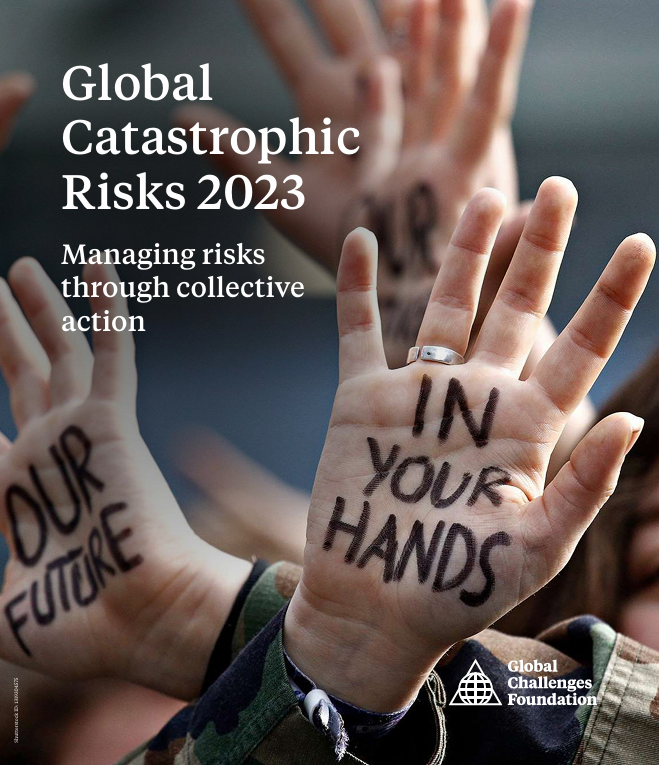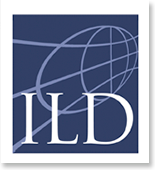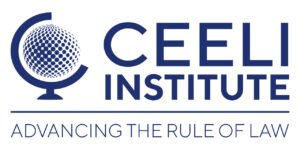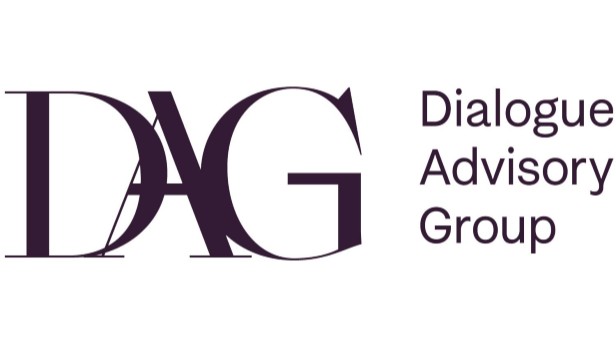Underscores managing risks through collective action. It underlines the importance of confronting interconnected risks like climate change, ecological collapse, and weapons of mass destruction. The report stresses the need for global cooperation and policy initiatives to offset these risks and prevent disastrous results. It also examines the potential risks of technological advancements like geoengineering and advanced AI. Also, it accentuates the necessity of devising efficient frameworks for global cooperation to tackle these issues. Global Catastrophic Risks 2023
Overview
Risks: the scientific context
Provides an overview of humanity’s global catastrophic risks. Firstly, it highlights their interconnected nature and the urgent requirement for collective action to manage and mitigate them. It further emphasizes the significance of comprehending the impact of climate change, technological advancements, and decision-making processes on these global risks. In addition, it addresses the challenges that climate change, ecological collapse, and weapons of mass destruction present, illustrating how these risks intersect and amplify each other.
Climate Change
Starts by highlighting the rising global fatalities due to extreme weather events, a direct consequence of climate change. These weather events, including droughts and floods, have wreaked havoc on millions of lives and homes, causing widespread hunger. Moreover, the text brings attention to a concerning reality: we are on the brink of climate tipping points, which, if surpassed, could trigger irreversible changes with substantial impacts on life on Earth. Therefore, expert analysis rooted in solid science is vital for creating effective governance models to address this issue. Understanding global risks is crucial for effective policy-making. Ultimately, it emphasizes the interconnectedness of global risks and the pressing need for preventative measures.
Ecological Collapse
Emphasizes that six of the nine planetary boundaries, vital for sustaining life on Earth, have been exceeded, leading to an ecological collapse. This situation has extensive consequences, such as food insecurity, water scarcity, accelerated climate change, and a loss of planetary stability. It further highlights these ecological disturbances’ interconnectivity and global impact on well-being. The text stresses surpassing safe limits in six critical Earth systems, resulting in rapid climate deterioration. Therefore, it calls for immediate action, advocating for global and local fairness-based sustainability and resilience strategies. Finally, it underscores the necessity of integrating scientific assessments and conservation efforts to protect biodiversity and ecosystem services.
Weapons of Mass Destruction
Focuses on the devastating potential of nuclear weapons, emphasizing their capacity to cause widespread destruction and enduring environmental consequences affecting all countries. It criticizes the current discussions and solutions involving only the nine nuclear-armed states, thereby marginalizing most of the global community in decision-making. Recognizing this, the document advocates for a more inclusive approach that involves the global community in disarmament and non-proliferation efforts. Ultimately, it emphasizes the need for improved global governance mechanisms to manage these substantial risks.
Global governance reform
Calls for comprehensive global governance reform to tackle challenges associated with climate change, ecological collapse, and weapons of mass destruction. It suggests creating more inclusive and efficient governance structures, stressing the necessity for diverse opinions in decision-making processes and multilateral collaboration. The document also underscores the significance of utilizing new technologies, reassessing the existing financial system, and catalyzing social tipping points to foster a more resilient and sustainable future.
Climate Change & Ecological Collapse
Highlights the interconnectedness of these issues, marking them as significant global challenges. It emphasizes, firstly, the need for holistic governance that tackles the complex interplay between these risks and their global impacts. Secondly, it underscores the importance of integrating scientific evaluations in climate change and biodiversity to pinpoint essential tensions and mutual benefits. Moreover, it advocates for proactive involvement from security and geopolitical institutions in managing conflict risks linked to critical minerals. Lastly, it calls for robust global governance for mining activities, implementing enforceable standards to curb ecological and security risks while encouraging sustainable practices and alternative technologies.
Weapons of Mass Destruction
Underlines the need for improved global governance to mitigate risks from nuclear weapons. However, it criticizes the focus on the nine nuclear-armed states, which unfortunately excludes most of the global community from decision-making processes. With this in mind, the document advocates for a reimagined governance framework that includes diverse voices and perspectives. Furthermore, it addresses the interconnected nature of nuclear risks, ultimately promoting collaborative disarmament and non-proliferation efforts.
UN-Reforms, Civil Society
Stresses the crucial role of civil society in staunchly advocating for UN reforms to address global challenges effectively. Furthermore, it underscores the vital importance of civil society organizations in tirelessly advancing policy commitments, delivering services to marginalized populations, and diligently promoting transparency. Moreover, it holds governments accountable. On top of that, the document highlights the UN’s considerable challenges in achieving the Sustainable Development Goals and strongly advocates for a greater degree of collaboration with civil society.
A Call for Global Cooperation and Collective Action
Here’s what the Global Challenges Foundation advocates for:
- Strengthened Global Governance: Effective international institutions and frameworks are crucial for fostering climate change mitigation, nuclear non-proliferation, and pandemic preparedness cooperation.
- Increased Investment in Research and Development: Continuous advancements in clean energy technologies, sustainable resource management practices, and early warning systems for potential threats.
- Public Awareness and Engagement: Raising public awareness about these existential risks and promoting a sense of urgency for action is vital. Collective action can drive policy changes and foster a culture of global responsibility.




